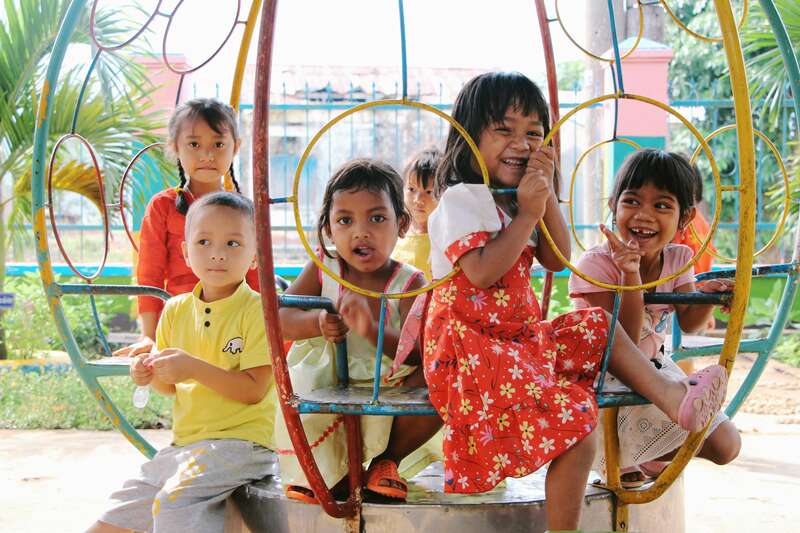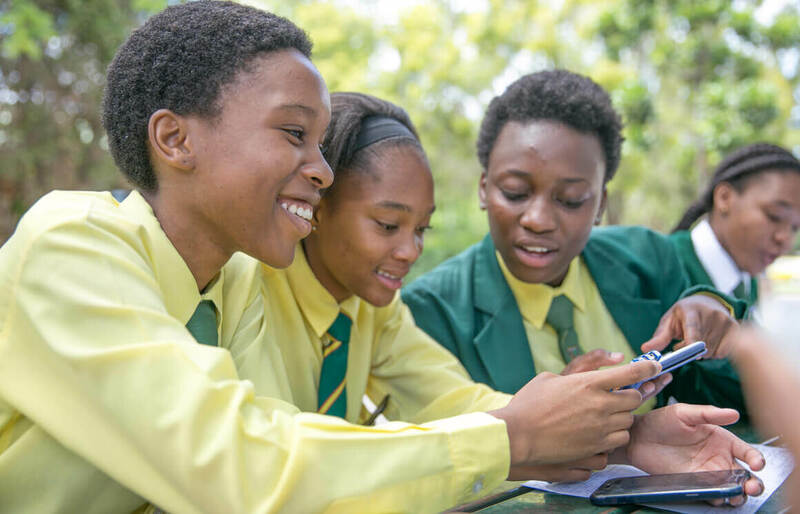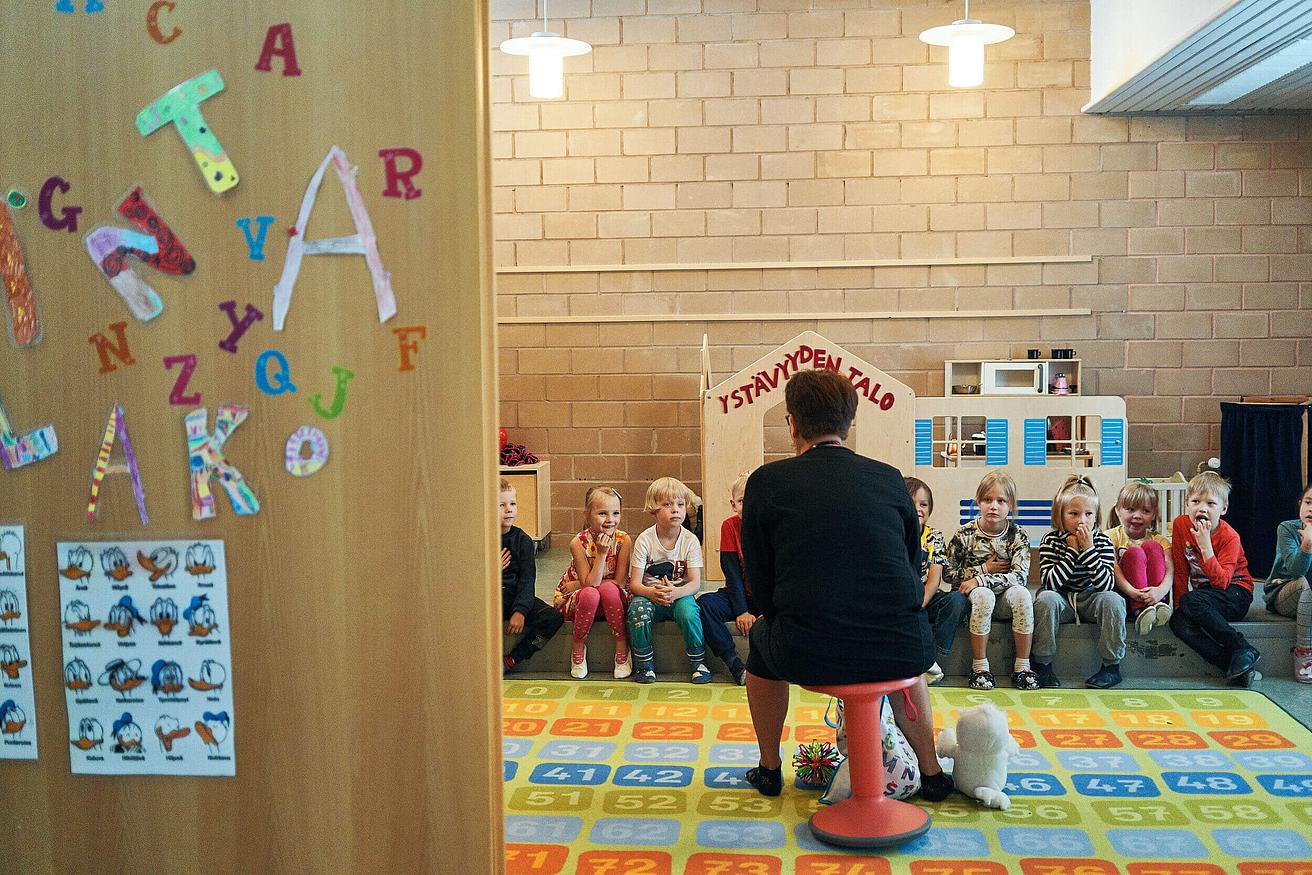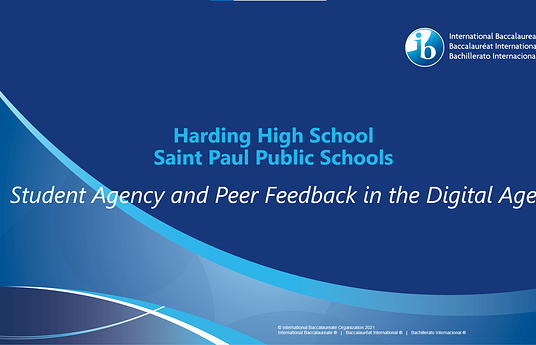Tomorrow, we will release the Formative Assessment: Improving Learning for Every Child Report, created in partnership with the Jacobs Foundation. The report is accompanied by a webinar, scheduled for June 28th, at 16:00 EEST.
“Rapid changes in the educational landscape have made it more important than ever to understand how we can best support teaching and learning”
In comparison to summative assessment, formative assessment refers to a wide variety of methods that teachers use to conduct in-process evaluations of student comprehension and academic progress during a lesson or course, in order to adapt teaching to the student's learning needs. In other words, formative assessments are for learning, while summative assessments are of learning.
“Rapid changes in the educational landscape have made it more important than ever to understand how we can best support teaching and learning”, says Julia Wyss, Program Manager at the Jacobs Foundation.
The report summarises the trends and benefits of formative assessment and introduces 14 solutions currently working to support teaching and learning through formative assessment.
Five critical points raised in the report are:
- Assessment culture matters in supporting the ways that formative assessment can be used effectively when an emphasis is placed on helping students learn rather than merely ranking them against each other.
- Formative assessment ensures students are aware of what they are supposed to learn and how they will be assessed. This agency in the learning process can increase student engagement, especially for students who are struggling academically.
- Teachers must be provided with the autonomy to decide how to best use the information and integrate it into their lessons.
- Formative assessment can improve teaching by supporting teachers to differentiate instruction according to learner needs.
- Digital tools are a key component of formative assessment in the creation and collection of data about students’ learning.
To coincide with the release of the report, HundrED is organising a webinar, Formative Assessment: Improving Learning for Every Child. The event will include a keynote address from Dylan Wiliam, Emeritus Professor of Educational Assessment at the UCL Institute of Education. It will also include conversations with the selected innovators on topics such as the critical role students play in their own learning, the central role of the teacher in organising formative assessments, how formative assessments can be scaled, and much more.
The event will take place on Tuesday, June 28th, 2022 online.
- Register for the event.
- Download the report to learn more about the selected innovations.
Meet the Selected Innovators for the Formative Assessment: Improving Learning for Every Child Spotlight
Being a Proactive Teacher in Formative Assessment (Kazakhstan)
In the context of the implementation of a criteria-based approach to assessment in Kazakhstan, FA has become an innovative practice for teachers. However, statutory formalization of FA in the country’s education policy has not fully induced a substantive change in classroom-based assessment practices because the real FA concepts appear to conflict with the early beliefs and experiences of teachers.

Process-oriented child monitoring (POM) in Early Childhood Education (Vietnam)
Process-Oriented Child Monitoring (POM), is a formative assessment system used in professional development programs for ECE teachers in Vietnam. Using two 5-point scales, teachers systematically observe and assess all learners' wellbeing and involvement using a simple paper-based or app-based tool. Based on this assessment, teachers identify children at risk of not learning, reflect on their own teaching practice, and on what withholds children from learning and meaningful participation. Teachers reflect individually and as a team and are supported by their school leaders and education officials.
Kadam - The Step Up Programme (India)
Kadam - The Step Up Programme is a comprehensive set of tools and techniques that enable children to close their learning gaps, and help teachers guide and facilitate the learning process. Each child is assessed to determine their entry point with age as the determinator for achieving learning level goals. A continuous assessment system is integrated as a participatory part of the learning system.
.jpg)
Classtime (Switzerland)
Classtime is a solution for teachers that complements in-class teaching with immediate feedback on every student’s level of understanding by asking questions and validating answers. Their Collaborative Challenges furthermore enable a teacher to create a narrative around their lesson plan that motivates students to work together towards a common goal.
Qridi - A Digital Platform for Formative Assessment (Oulu, Finland)
Qridi encourages learners and teachers to look at learning and progress as a group and as individuals. Learning is planned and monitored under the teacher’s guidance, future skills are strengthened and personal strengths are identified. The learning journey is recorded and made visible with the help of different functionalities. The resulting data acts as an instrument for dialogue in learning.
Peergrade (Copenhagen, Denmark)
Peergrade is an online platform that facilitates anonymous peer feedback. With Peergrade students get faster and better feedback while engaging in higher-order thinking. Features in Peergrade such as flagging and feedback rubrics ensure that students get the best feedback possible and scaffold the process of peer review. While teachers get a full overview of submissions, feedback, and results.
Navigated Learning Collaborative powered by Gooru Navigator (United States)
The focus of the Navigated Learning Collaborative (NLC) is to enable every child to learn at her own pace and attain mastery through the use of Gooru Navigator. Gooru Navigator is an open-source data platform that enables all stakeholders in the education ecosystem to work together by providing access to real-time student data, aligning their efforts backed by evidence on how learning happens.
.jpg)
International Baccalaureate & Harding High School - Peer Feedback using Comparative Judgment (The Hague, Netherlands)
This innovation focuses on the pedagogical design of peer feedback using comparative judgment. Built on 4 years of research and design of effective practices in formative assessment at the IB, the current study explores the impact of this approach on students' holistic learning and development. Teacher observations and initial analyses of student work have reported very promising findings.
Socrative (Canada)
Socrative is the classroom app for formative and summative assessments that allow you to quiz and grade at the speed of learning from any device. Check student understanding with prepared activities or on-the-fly questions with real-time reports to visualize learning.
WestEd’s Formative Insights: Assessment for Learning (United States)
WestEd’s Formative Insights team leads transformative, scalable professional learning with teachers, leaders, and policymakers. Rooted in current research, we enable dramatic shifts in the student role by supporting teachers and leaders to strengthen students’ self-regulation skills and develop systems that sustain deep learning.
Sapientia - Gamified and Formative Assessment (Brazil)
A gamified application that allows the students to get involved in subject challenges, questions, and problem-solving, improving the learning process as a playful and engaging activity. It is a tool for formative assessment for teachers, which offers simple and customizable metrics, scores, and tracks from students, to increase qualified teaching, learning, and self-regulation strategies.

Siyavula (South Africa)
Siyavula addresses the poor mathematics performance of secondary school students across Africa. Siyavula’s approach enables mastery-based learning through adaptive, formative assessment delivered over existing mobile infrastructure. In addition to having access to pedagogically-sound content and instruction in class, practice is essential to learning, particularly in Mathematics.
Maths Pathway (Australia)
Maths Pathway is a holistic Learning and Teaching Model that leverages technology to enable teachers to target each student’s point of need, and allows them to focus on practices that have the greatest impact on student learning. The model is currently available for Year 5 – Year 10 students, and has proven successful in a broad range of school contexts.
The Modern Classrooms Project (United States)
The Modern Classrooms Project empowers educators to build classrooms that respond to every student’s needs. We lead a movement of educators in implementing a self-paced, mastery-based instructional model that leverages technology to foster human connection, authentic learning, and social-emotional growth.



